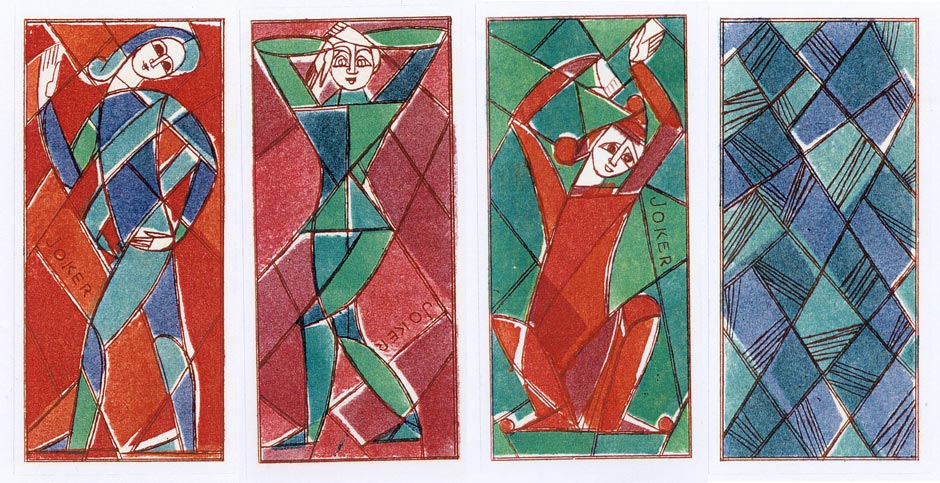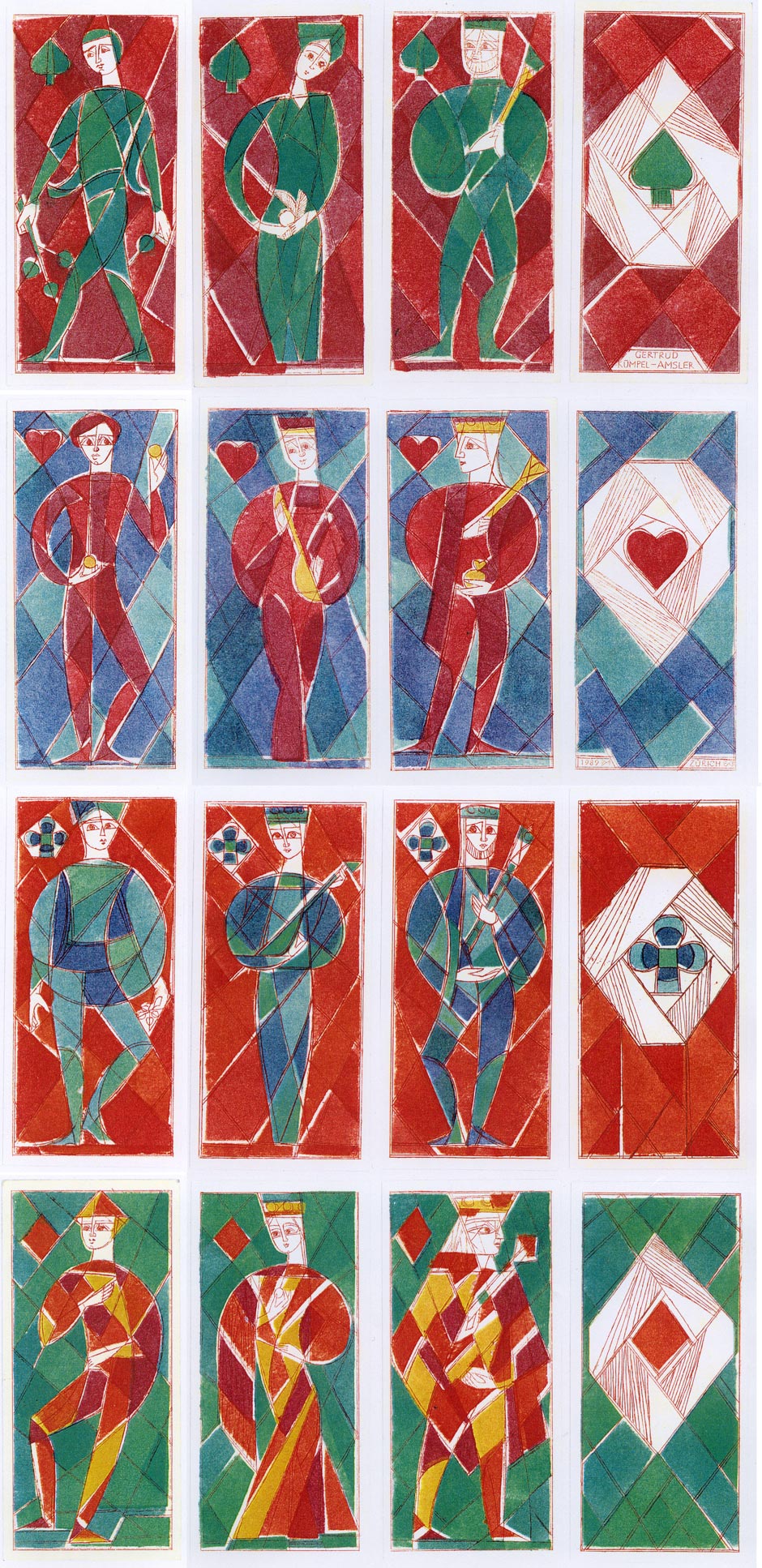Vitrail‒Bridge, 1991
Playing cards inspired by stained glass, designed by Gertrud Kümpel-Amsler, 1991.
Vitrail‒Bridge playing cards inspired by stained glass, designed by Gertrud Kümpel-Amsler, Zurich, 1991. Although not actually located inside a church window these playing card designs successfully imitate subtle tones of light filtering through coloured glass. To make your own faux-stained glass playing cards you could print images onto high gloss laminate and fix them on the windows!

Above & below: Vitrail‒Bridge playing cards inspired by stained glass, designed by Gertrud Kümpel-Amsler, 1991.

Above: Vitrail‒Bridge playing cards inspired by stained glass, designed by Gertrud Kümpel-Amsler, 1991.
Footnote by Roddy Somerville
I met Gertrud and her husband several times at meetings of Cartophilia Helvetica. They were a delightful, unassuming couple. She was originally asked to create, in stained glass, a Jack, a Queen and a King for the main entrance to AGMüller's offices in Neuhausen am Rheinfall. The project was deemed such a success that she was then asked to design a full pack of 52 cards plus 3 different Jokers. The pack was first issued in the summer of 1991 in a signed and numbered edition of 150 copies. An unnumbered edition followed soon afterwards.

By Simon Wintle
Member since February 01, 1996
I am the founder of The World of Playing Cards (est. 1996), a website dedicated to the history, artistry and cultural significance of playing cards and tarot. Over the years I have researched various areas of the subject, acquired and traded collections and contributed as a committee member of the IPCS and graphics editor of The Playing-Card journal. Having lived in Chile, England, Wales, and now Spain, these experiences have shaped my work and passion for playing cards. Amongst my achievements is producing a limited-edition replica of a 17th-century English pack using woodblocks and stencils—a labour of love. Today, the World of Playing Cards is a global collaborative project, with my son Adam serving as the technical driving force behind its development. His innovative efforts have helped shape the site into the thriving hub it is today. You are warmly invited to become a contributor and share your enthusiasm.
Related Articles

Modern Swiss-German Pattern (carta.media)
Modernizing tradition: balancing clarity and continuity in regional card design.

Tactics Design
Late modernist Japanese playing cards designed by Masayoshi Nakajo for Tactics Design.

The Decadent Deck
Studies in the eroticism of the female body by Inge Clayton.

Historic Shakespeare
“Historic Shakespeare” playing cards featuring Shakespearean characters by Chas Goodall & Son.

Sunday Night / Nichiyoubi no Yoru
An irreverent, avant-garde deck unofficially titled "Nichiyoubi no Yoru" (Sunday Night), designed by...

Emilio Tadini playing cards
Beautiful dreamlike playing card designs by Emilio Tadini.

Zürcher Festspiel 1903
Swiss-suited pack designed by Robert Hardmeyer featuring figures from art and politics.

Never Mind the Belote
Limited edition Belote pack with designs by a collective of 24 street artists.

Playing card designs by Franz Exler
Reconstruction of playing cards from the original 1903 designs.

MITSCHKAtzen
Clever cat designs by the Austrian artist and illustrator Willi Mitschka.

22 Pittori in 22 Arcani
Collaborative Tarot with contributions from 22 different Italian artists including Menegazzi and Tav...

Whist by Ditha Moser
Ditha Moser created this minimalist Whist deck in 1905, in the style of the Vienna Secession art mov...

Keith Haring playing cards
Energetic graffiti images by the American artist Keith Haring.

The Tarot of Meditation – Yeager Tarot
Marty Yeager’s original Tarot of Meditation from 1975, republished later by U.S. Games Systems, Inc....

Carte di Natale
Designed by Pier Canosa as a Christmas pack for the Cortina Art Gallery in Milan.

Queen of Arts
A wide variety of women artists celebrated on cards with illustrations by Laura Callaghan.
Most Popular
Our top articles from the past 28 days

